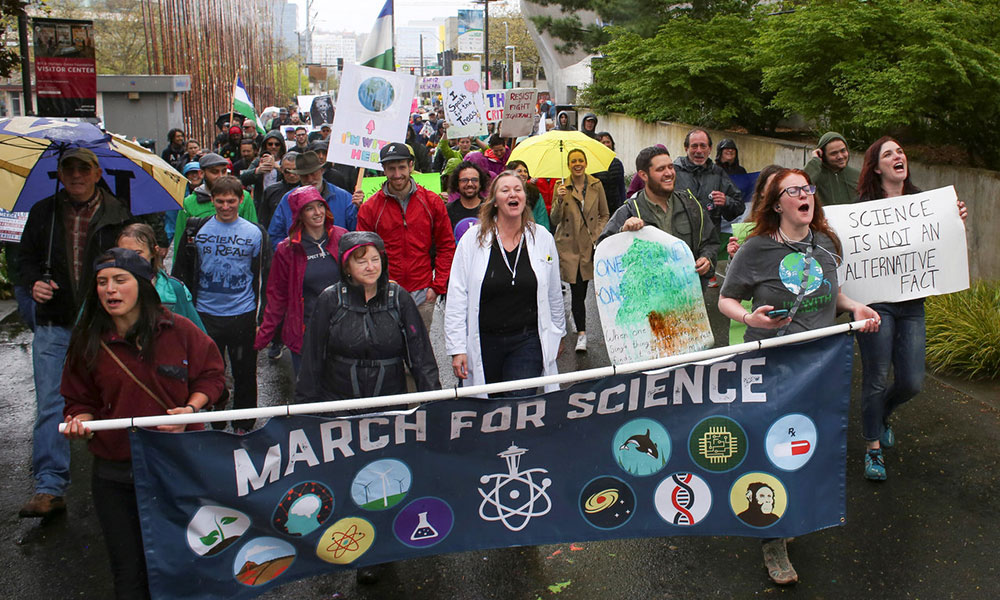
After Successful Science March, Associations Promise to Carry Message to Legislators
Dozens of associations that took part in last weekend's March for Science events say that they plan to "build on this momentum created by the marches" in their advocacy approaches going forward.
There was plenty of evidence that the March for Science was a popular event.
Sponsored by numerous scientific groups and driven by a grassroots interest in ensuring that scientific endeavors get a seat at the table in legislative endeavors, the March for Science, which had satellite events in cities around the country, drew thousands of people out into the streets in the interest of evidence-based research—something that doesn’t always get enough love in Washington.
“Today we have a great many lawmakers, not just here, but around the world, deliberately ignoring and actively surpassing science,” celebrity speaker Bill Nye the “Science Guy” said during a speech at the event, according to The Hill. “Their inclination is misguided, and in no one’s best interest.”
And much like the Women’s March on Washington did in January, the March for Science is encouraging the groups that took part to think about what comes after the moment of advocacy.
In a joint statement published Monday, a number of associations that took part in the event—led by the American Association for the Advancement of Science (AAAS), but including 30 other organizations—pledged to take action to ensure that scientific endeavors have a supporting voice in the policy realm.
“While we all depend on science for hope, science will depend on us moving forward,” the letter stated [PDF]. “We must build on this momentum created by the marches to more actively demonstrate the value of science to local, state, and national policymakers, as well as in classrooms and local communities.”
AAAS CEO Rush Holt, who spoke at the event in Washington, DC, on Saturday, noted in a news release that the large crowds at the event, which took place on Earth Day, would be a motivator for science groups going forward.
“Thousands of marchers and more than a hundred organizations rallied around the standard that AAAS raised,” Holt said in a news release. “Now the science community turns to capturing the great energy and concern expressed in many ways through many voices during the marches and works to channel them toward the advancement of science.”
It wasn’t always a sure thing that science associations would show the support they did for the March for Science, but in February, the event announced a wide range of supporters who were won over by march organizers who ensured that the event would have a nonpartisan focus—“explicitly pro-science rather than against any partisan position,” as Holt put it at the time.
The approach helped encourage both the success of the event, as well as an experienced organizer, the Earth Day Network, to help tie the marches to existing Earth Day events.
People shown holding signs at the Seattle offshoot of the March for Science. (David Ryder/Reuters)






Comments